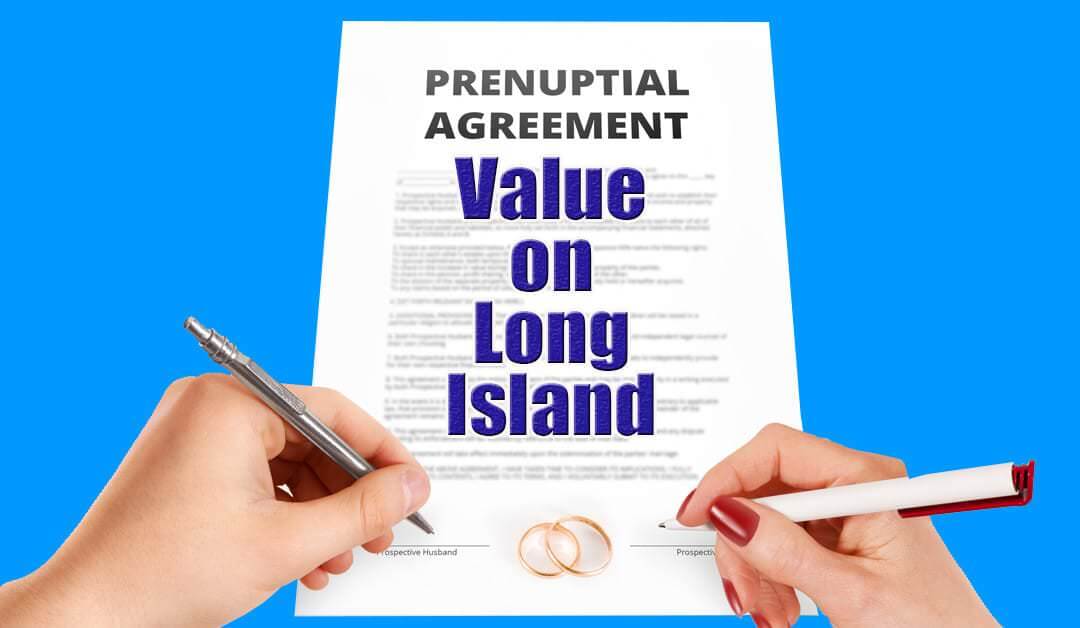
by Robert E. Hornberger, Esq | Feb 7, 2017
Prenuptial Agreements and Postnuptial agreements can save Long Islanders a great deal of stress in the event of a divorce or breakup. A divorce and breakup represents one of the most difficult times in a Long Islander’s life. These events cut at the core of one’s life and family relationships. To exacerbate the emotional component of divorce, the financial aspect of divorce only makes things worse. Splitting the assets and determining who keeps the money and property creates tremendous stress on all parties. For this reason, many Long Island divorce attorneys will recommend a prenuptial or even postnuptial agreement that addresses these issues ahead of time. (more…)

by Robert E. Hornberger, Esq | Jan 31, 2017
For a number of reasons, many Long Islanders choose to include confidentiality clauses in their prenuptial agreements. This is an important issue, particularly when there is a high net-worth or risk or negative publicity involved in the relationship. Anyone entering into a prenuptial agreement should consider adding these clauses if they wish to ensure their privacy in the event of divorce. (more…)
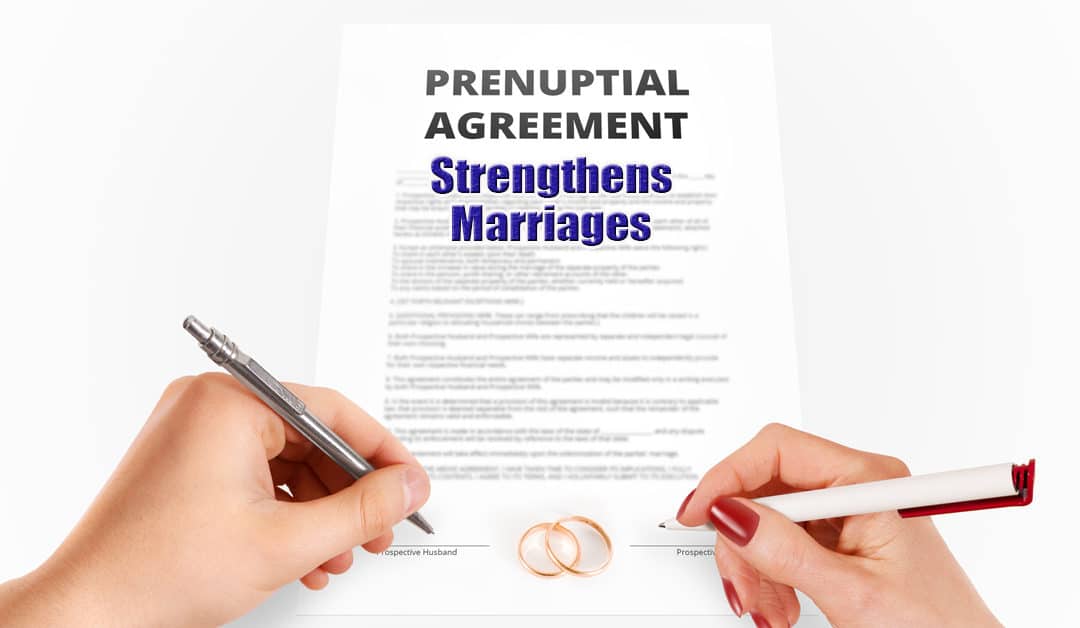
by Robert E. Hornberger, Esq | Nov 1, 2016
As a Long Island divorce attorney I see an increasing number of Long Island couples choosing to enter into prenuptial agreements before they get married to ensure their interests are protected in the event of divorce down the road. While this may seem negative or depressing to many, what those people do not consider, however, is that a prenuptial agreement can actually be beneficial to the marriage. Not only do prenuptial agreements protect soon-to-be spouses in the case that the marriage does not work out, but the process of entering into these agreements requires that couples take an honest and intelligent approach to the marriage rather than be simply carried away by emotion. This can actually set the stage for a healthier, and more long-lasting marriage in the long run. (more…)
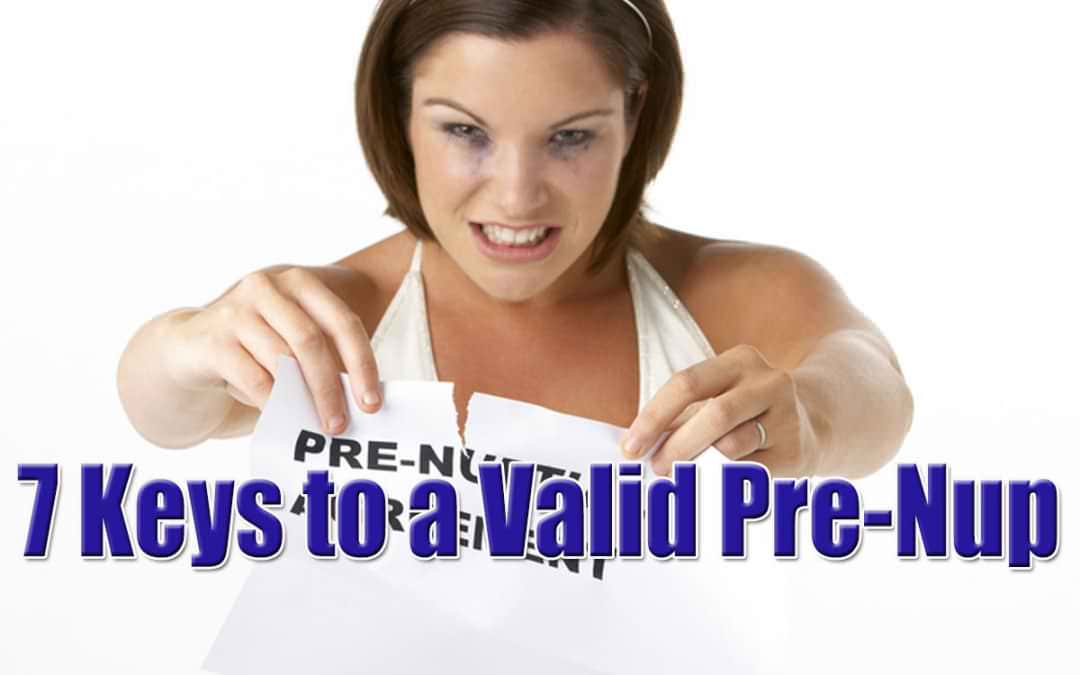
by Robert E. Hornberger, Esq | Aug 2, 2016
As a Long Island Divorce Attorney, I see more and more Long Island couples are choosing to enter into prenuptial agreements in order to protect their interests in the event of divorce. When drawing up the prenuptial agreement in Nassau County or Suffolk County, most future spouses feel they have every reason to believe that it will be valid. However, in some circumstances, these agreements fail and are invalidated when it comes time to use them.
7 Key Concepts to Valid Prenuptial Agreement on Long Island
In order to avoid having your agreement invalidated in New York, there are seven key main concepts to understand.
1. Full and Honest Disclosure
First, both parties to the agreement must give a full and honest disclosure of all assets and debts. One party’s failure to disclose and include even one retirement account can lead to the agreement being invalidated later on. Similarly, if a party hides a debt, it creates the same problem. Since the prenuptial agreement is intended to be a comprehensive agreement that covers all assets and liabilities, anything hidden from a party raises a question of whether the party would have signed the agreement had he or she known about it. Providing false information is even more likely to result in an invalidation of the agreement. Failure to disclose information, or providing false information, could rise to the level of fraud.
2. Both Parties Voluntarily Enter the Prenuptial Agreement
Both parties must enter the agreement voluntarily and without someone else’s coercion. If a party is placed under pressure to sign the agreement, such as being given an agreement to sign the day before the wedding, the agreement can be invalidated. Even if an agreement seems to be fair, any manipulation or tricks that were present could raise a question about the agreement’s validity. Parties should also have an opportunity to negotiate the terms of the contract, which will speak to the fact that the terms were negotiated between equals, rather than one party unduly influencing another. A lack of negotiation could indicate that there was some type of coercion or improper influence that could lead to an invalidation of the agreement.
3. Parties Have the Mental Capacity to Enter a Prenuptial Agreement
Prenuptial agreements may be invalidated if one of the parties to the agreement lacked the mental capacity to enter into a binding agreement. In this case the agreement can be invalidated. Mental capacity could include intoxication by drugs or alcohol, or severe mental illness that would affect the party’s ability to understand the agreement’s meaning and terms.
4. Prenuptial Agreement Must be Fair
A prenuptial agreement that greatly favors one side to the point of “shocking the conscience” may be invalidated. If one side will be awarded nearly everything, and the other receives only a nominal amount, the agreement may be too lopsided and unfair to be enforceable.
5. Parties Must Have Separate Legal Representation
In order for a prenuptial agreement to be effective, each party must have his own legal representation and the ability to negotiate the terms of the contract. Parties cannot use the same attorney, as an attorney cannot represent both parties to a contract. Since these agreements can be rather complex, an attorney can ensure that his client fully understands the terms and the process.
6. Provisions in the Prenuptial Agreement Must be Legal
The agreement cannot contain any provisions that are illegal or “contrary to public policy.” For example, a party cannot dispense with future obligations to pay child support or care for his children. If there are illegal provisions or provisions that are against public policy, it is possible for those specific provisions to be invalidated while leaving the rest of the document intact.
7. Proper Execution of the Prenuptial Agreement
Finally, the agreement must be signed by both parties and also notarized. The absence of proper notarization that verifies the signatures raises a question about the validity of the signatures. The document must also be written in accordance with the laws of New York for a recordable instrument, such as a real estate deed.
Considering a Prenuptial Agreement? Get the Help of An Experienced Long Island Divorce Attorney
Keeping these points in mind is important whether you are thinking of signing a prenuptial agreement or if you are trying to have an unfair agreement thrown out. The circumstances of each case are different, and your Long Island divorce attorney can help you to navigate the law according to your specific situation. If you are considering or are preparing to enter into a prenuptial agreement, or if you are headed for a divorce and want to determine whether your current prenuptial agreement is valid, you will need a trusted and experienced attorney to provide counsel, assistance, and representation. The attorneys at the Law Office of Robert E. Hornberger, PC are experienced in the preparation of prenuptial agreements as well as prenuptial agreement disputes that arise during divorce. Contact our office at 631-923-1910today for a free consultation.
For more information about Prenuptial and Postnuptial Agreements, please read Your Guide to Long Island Prenuptial & Postnuptial Agreements
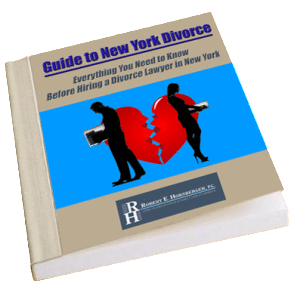
Download our Free New York Divorce Guide
Our 41-page “Guide to New York Divorce: What You Need to Know Before Hiring a Divorce Lawyer in New York” written by an experienced family law lawyer Long Island’s Robert E. Hornberger, Esq., provides you with real information on the divorce process and the laws it rests upon in the state of New York. This book will help give you a solid foundation upon which you can begin the process of making your family’s, life better. Download your Free Guide to New York Divorce here.
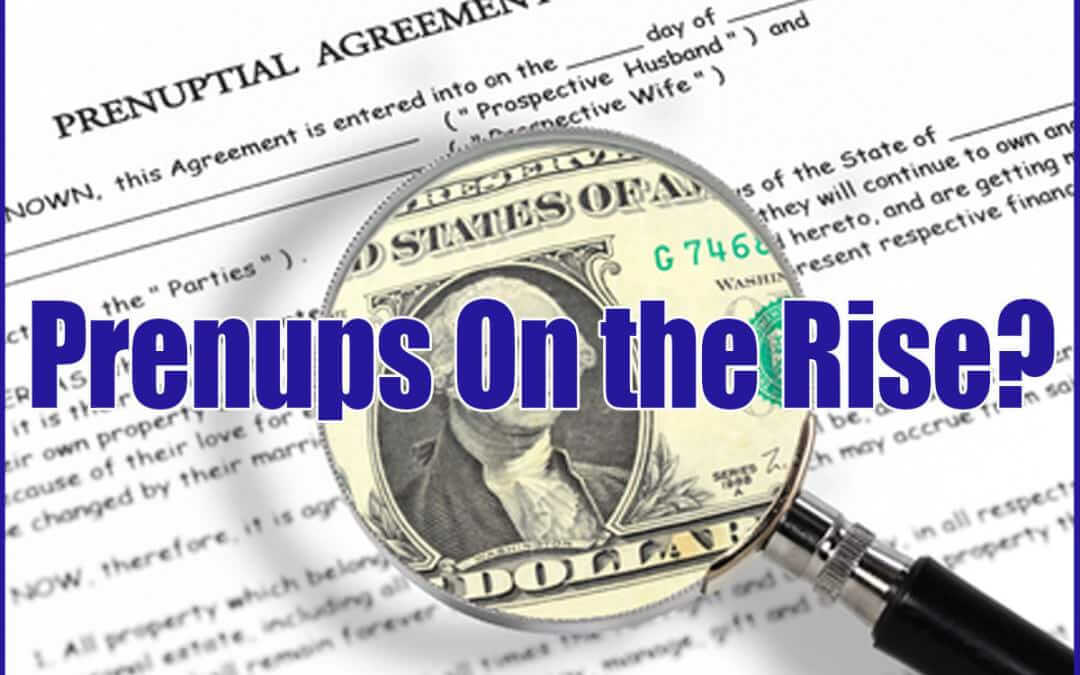
by Robert E. Hornberger, Esq | Nov 17, 2015
As a Family Law Attorney practicing in Nassau County and Suffolk County, Long Island, I have seen as more and more couples wait until they are more established in their careers before marrying, and the increase in second or even third marriages, the number of couples looking to have pre-nuptial agreements has also increased.
What is a Prenuptial Agreement on Long Island?
A prenuptial agreement, or ante nuptial agreement as it is called in New York State Law, is a contract agreement between two individuals prior to the marriage that describes the legal rights of the parties upon divorce or the death of one of the parties. This type of agreement commonly addresses issues of division of property as well as spousal or child support in order to avoid disagreement or litigation if divorce were to occur in the future. Prenuptial agreements are tailored to suit each couple’s unique needs, and provide protection to those entering a marriage contract on Long Island.
Prenuptial agreements can establish each spouse’s right to property, assets, and debts in the event of death or divorce, the right of each spouse to buy, sell, lease, or otherwise control property during the marriage, and each spouse’s right to spousal support or death benefits.
Why Get a Prenuptial Agreement?”
Couples might wish to sign a prenuptial agreement in order to clarify their rights and expectations prior to entering the marriage. As many people on Long Island now wait until a relatively older age to marry, individuals in Nassau County or Suffolk County going into a marriage may have accumulated more income and assets that they wish to protect than we have seen in the past. For individuals marrying for a second or third time, the importance of a prenuptial agreement may be paramount to ensure their future financial security in case of a divorce.
Prenuptial Agreements Can Change the Outcome of Equitable Distribution on Long Island
Couples signing a prenuptial agreement should understand that their divorce may be governed by this document, and, so long as the contract was skillfully drafted and properly executed (the document must be in writing, signed, and properly executed in front of notary public in order to be valid), they will no longer be subject to the New York’s Equitable Distribution laws. Under the Equitable Distribution law, marital property is divided based upon what a Long Island court may see as equitable, and may entitle a spouse to a far greater share of marital property than that provided by a prenuptial agreement.
Prenuptial Agreements Can Protect Your Inheritance
A prenuptial agreement may also provide for a spouse’s right to inheritance upon the death of her spouse. The rights of inheritance imparted by a prenuptial agreement can differ from the law of the state. Under New York Law, if a spouse dies without a prenuptial agreement governing the inheritance, the surviving spouse will be entitled to anywhere between $50,000 up to one half of the decedent’s estate, regardless of what the decedent spouse’s will says. This is known as the elective share. However, if a valid prenuptial agreement has been signed, the agreement will preempt the elective share law, and the surviving spouse will be entitled to whatever terms to which she agreed prior to the marriage. In many cases, a less wealthy spouse will receive less under a prenuptial agreement than she would under the New York State Laws governing divorce and inheritance.
Prenuptial Agreements Don’t Circumvent the Law on Long Island
There are some situations upon which a prenuptial agreement may be invalidated. For example, if a person deliberately hides assets in order to induce a spouse into agreeing to a low level of support under a prenuptial agreement, a court may declare the agreement invalid. If a spouse was unduly pressured or coerced into signing the agreement, it may also be invalid. For example, if a prenuptial agreement is presented to a spouse on the day before the wedding, a court might determine that the agreement was signed under duress and is therefore invalid.
Prenuptial Agreements & Child Custody, Visitation in Nassau County and Suffolk County
Insofar as a prenuptial agreement can govern child custody and visitation, that portion of the agreement is valid only if the couple already had children at the time that the agreement was signed. Otherwise, it is not valid in this regard. Even if the couple had children prior to marriage, a judge will make the final decisions regarding custody and support to ensure that the best interests of the child are protected.
Couples are given freedom to create the terms of the prenuptial agreement in any way that they feel is best suited for their personal circumstances. For example, the law does not mandate that a prenuptial agreement provide spousal support. Courts in Nassau County and Suffolk County will honor the private agreements so far as its covenants are legal; a court will not honor the agreement if it requires a spouse to commit a crime, condone domestic violence, or prevent a spouse from prosecuting a crime.
Experienced Long Island Family Law Attorney Recommends you Ensure Your Prenuptial Agreement Protects You & Is Enforceable on Long Island
It is important that both parties to a prenuptial agreement in Nassau or Suffolk County on Long Island seek the advice of an experienced Family Law attorney. The Law Offices of Robert E. Hornberger, P.C. can assist you in navigating the process of entering into a prenuptial agreement, ensure your rights are protected and ensure that the agreement can be legally enforced in the future. Contact us at 631-923-1910 or fill out the short form on this page and we’ll get right back to you to set up a free consultation to discuss your needs.
For more information about Prenuptial and Postnuptial Agreements, please read Your Guide to Long Island Prenuptial & Postnuptial Agreements
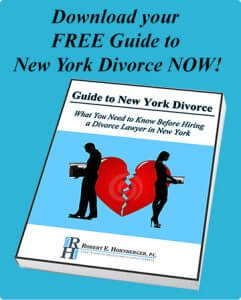
Download our Free New York Divorce Guide
Our 41-page “Guide to New York Divorce: What You Need to Know Before Hiring a Divorce Lawyer in New York” written by an experienced family law attorney Long Island’s Robert E. Hornberger, Esq., provides you with real information on the divorce process and the laws it rests upon in the state of New York. This book will help give you a solid foundation upon which you can begin the process of making your family’s, life better. Download your Free Guide to New York Divorce here.
by Robert E. Hornberger, Esq | May 9, 2013
Big Update for Prenuptial Agreements on Long Island
In an unprecedented, landmark ruling, a New York appeals court has upheld a Long Island judge’s decision to void a prenuptial agreement between Elizabeth Cioffi-Petrakis and Peter Petrakis.
History of the Pre-Nup
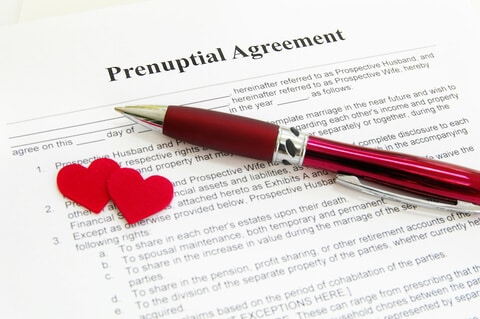 Four days before their marriage, Mr. Petrakis approached Ms. Cioffi-Petrakis with a prenuptial agreement orally stating that if she signed it, once they had kids, he would destroy the prenuptial agreement and add her name onto the deed of the house. Mr. Petrakis told her that he didn’t want to do it, but his lawyers wanted him to protect his business and future. He also stated that if she didn’t sign it, the wedding, for which Ms. Cioffi-Petrakis’ father had already paid $40,000, would be off. Ms. Cioffi-Petrakis signed the prenuptial agreement. Mr. Petrakas promises were made orally and were not included in any part of the contract and he subsequently went back on his word.
Four days before their marriage, Mr. Petrakis approached Ms. Cioffi-Petrakis with a prenuptial agreement orally stating that if she signed it, once they had kids, he would destroy the prenuptial agreement and add her name onto the deed of the house. Mr. Petrakis told her that he didn’t want to do it, but his lawyers wanted him to protect his business and future. He also stated that if she didn’t sign it, the wedding, for which Ms. Cioffi-Petrakis’ father had already paid $40,000, would be off. Ms. Cioffi-Petrakis signed the prenuptial agreement. Mr. Petrakas promises were made orally and were not included in any part of the contract and he subsequently went back on his word.
Appeals Court Rules in Favor of Long Island Wife
The Brooklyn Appeals Court agreed with the Nassau County Court that the Prenuptial Agreement was a “fraudulently induced” contract, creating an unprecedented event in the New York Family Law world.
Divorce Proceeds without PreNup
Now that the prenuptial agreement is stricken, the divorce proceeding will move forward, however, this decision will lead to a lot of future litigation regarding “fraudulently induced” prenuptial agreements.
If you feel that you were lied to in signing a prenuptial agreement, or if you would like more information about Prenuptial Agreements, we can help. The attorneys at Hornberger Verbitsky, P.C. are conscientious about staying abreast of the latest trends in legal matters in Nassau County and Suffolk County Divorce and Family Law Courts on Long Island, NY and are available to answer your questions regarding these matters at any time. For a free private consultation about your needs, contact the experienced attorneys at Robert E. Hornberger, PC at 631-923-1910 or fill out the form on this page and we’ll get right back to you.
by Robert E. Hornberger, Esq | Jan 16, 2013
Wish You Had Gotten a PreNup? You Can Have a Post-Nuptial Agreement
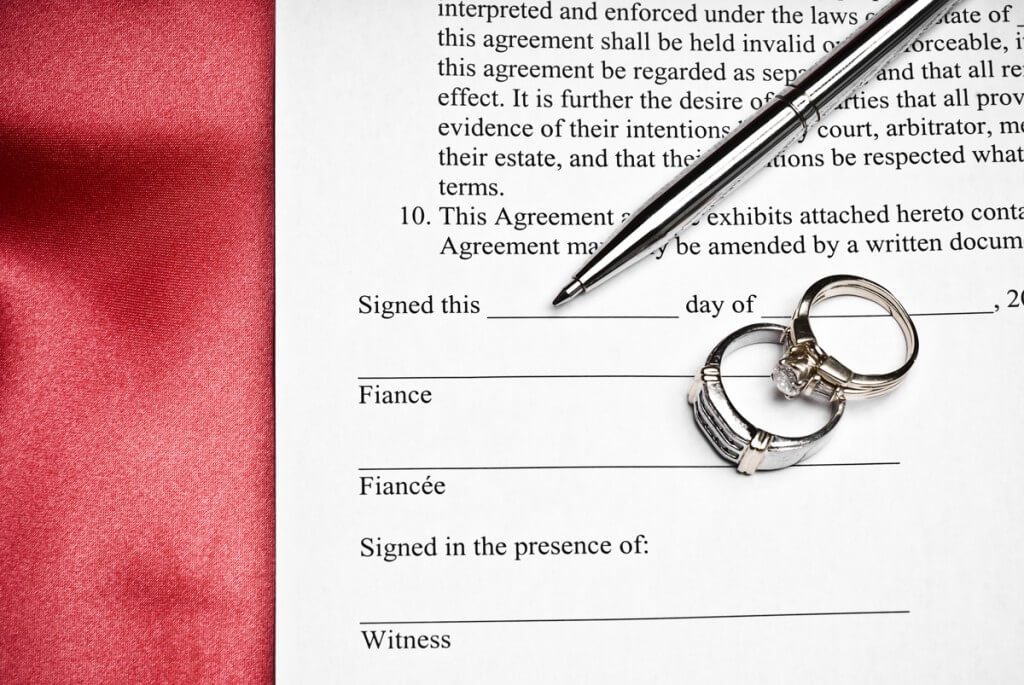 Most Long Islanders have heard about Prenuptial Agreements, if only in the cases of very wealthy people or movie stars, but did you know there’s something called a Post Nuptial Agreement? As a Family Law Attorney on Long Island, I see it much less frequently than the pre-nup, but it’s not unheard of, and they can be much trickier legally, so it’s in your best interest to seek the counsel of an experienced lawyer to assist you with yours.
Most Long Islanders have heard about Prenuptial Agreements, if only in the cases of very wealthy people or movie stars, but did you know there’s something called a Post Nuptial Agreement? As a Family Law Attorney on Long Island, I see it much less frequently than the pre-nup, but it’s not unheard of, and they can be much trickier legally, so it’s in your best interest to seek the counsel of an experienced lawyer to assist you with yours.
What is a Post Nuptial Agreement?
Prenuptial agreements are an attempt, before marriage, to fix or arrange consequences of marriage and/or its dissolution. Post-nuptial agreements are created after the marriage has occurred, and serve the same purpose as prenuptial agreements. In New York, the courts have held that post-nuptial agreements are enforceable, but some courts will scrutinize post-nuptial agreements more carefully than prenuptial agreements.
Get It in Writing
In order to be valid and enforceable, Post-Nuptial agreements must be in writing with clear and unambiguous terms. New York courts typically will not uphold an oral Post-Nuptial agreement. The agreement must meet the requirements set forth by the Statute of Frauds, meaning that the intent of the parties must be in writing and signed by both parties.
What Makes a Post Nuptial Agreement Legally Binding?
The agreement must also ensure that there is no indication of fraud, duress, coercion and is not unconscionable.
The courts also look to whether there has been a disclosure of all the assets and whether each party had independent counsel. If there was no independent counsel, the courts look to written informed consent from one spouse waving independent counsel. Finally, the agreement must properly be signed and acknowledged by both parties to be enforceable and valid.
See Experienced Counsel
If you’re considering a Post Nuptial Agreement, be sure to seek the advice of an experienced attorney. As stated earlier, New York State Courts take a very hard look at Post Nuptial Agreements and one small error could make your agreement unenforceable. The Law Offices of Robert E. Hornberger, P.C. are familiar with the laws regarding Post-Nuptial Agreements and will be happy to advise you. Contact us at 631-923-1910 for a free consultation.
For more information about Prenuptial and Postnuptial Agreements, please read Your Guide to Long Island Prenuptial & Postnuptial Agreements
by Robert E. Hornberger, Esq | Jan 9, 2013
How to Ensure Your Prenup is Enforceable on Long Island, NY
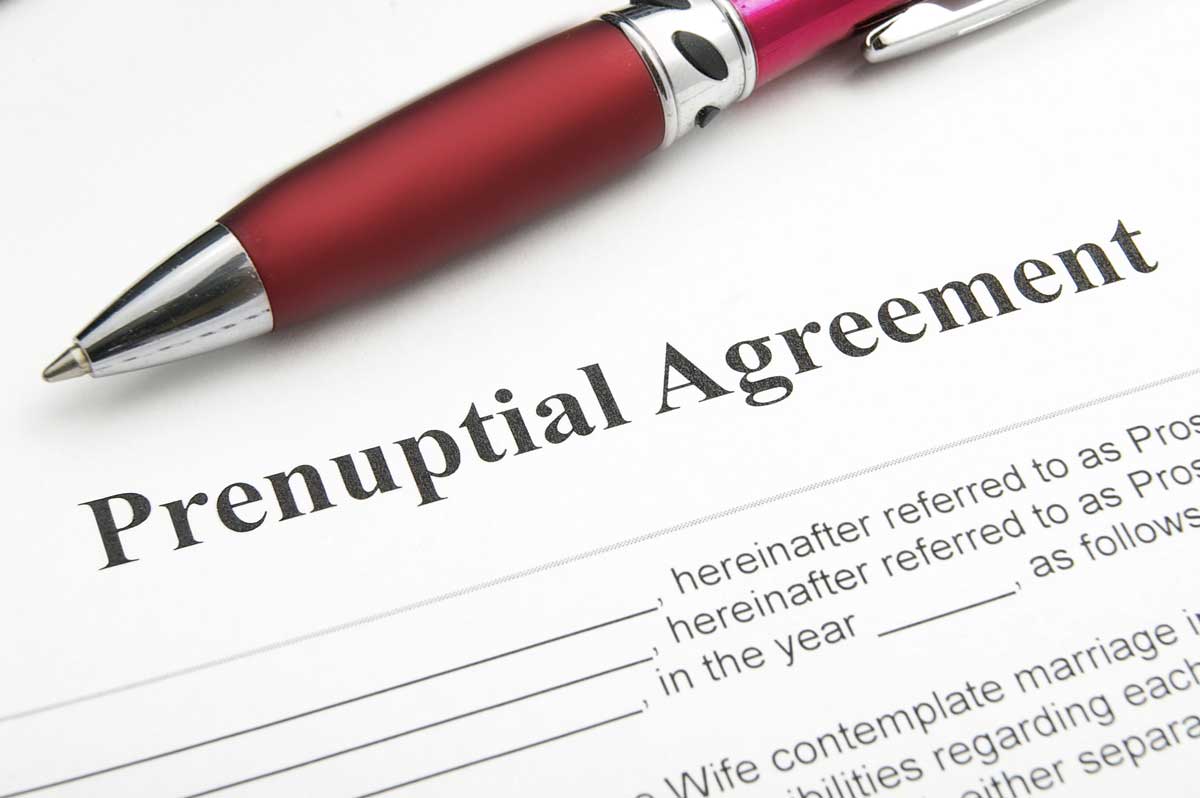
Getting Married? Thinking About a Pre-Nup?
As a Long Island, NY Divorce lawyer I am often asked to help couples engaged to be married to draw up legally binding Prenuptial Agreements for them before they get married. Most people have heard of “pre-nups”, as they’re sometimes called, but the average person does not understand the legal basis for such an agreement.
Why a ‘Pre-Nup’?
Prenuptial agreements are an attempt, before marriage, to fix or arrange consequences of marriage and/or its dissolution. There are as many different attitudes toward pre-nuptial agreements as there are couples getting married, but there are many reasons for prenuptial agreements, including, but not limited to:
- encouragement of financial discussions
- accepting reality of divorce statistics
- promoting marital stability
- promotion of fairness
- fostering of communication
- encouraging parties to resolve their own personal matters how they see fit
For couples on Long Island, prenuptial agreements are governed by New York Domestic Relations Law 236 B (3). Within the state, there is a strong public policy in favor of parties resolving their own personal matters how they see fit and the courts have granted prenuptial agreements the same presumption of legality as any other contract. In NY, parties can opt out of the equitable distribution statute and can redefine property distribution as they see fit.
What Makes an Agreement Enforceable
DRL 236 B (3) states that a prenuptial agreement is valid and enforceable if it is:
- in writing
- unambiguous
- signed by the parties
- acknowledged in the same manner for a deed to be recorded
The agreement can include:
- Ownership
- Division
- distribution of separate and marital property
- amount and duration of spousal maintenance
- other terms and conditions of the marital relationship
- as long as they are fair and reason at execution and not unconscionable at enforcement
- custody, care, education, and maintenance of children of parties.
Procedural Fairness and Substantive Fairness
- Procedural fairness ensures that there is financial disclosure and independent legal counsel.
- Substantive fairness ensures that the agreement was not procured by fraud, undue influence, duress, overreaching, unconscionability (terms that are excessively unfair to one party).
Definition of Terms
The courts have said it is not undue influence or duress to threaten to call off the marriage or to give the agreement the day of or day before marriage. The courts have defined overreaching as willfully concealing assets and/or misrepresentation. Unconscionability is defined as an agreement which no person in his or her senses and not under delusion would make and no honest and fair person would accept; inequality so strong and manifest as to shock the conscience and confound the judgment of any person of common sense. The courts look at whether it was “fair and reasonable” at time of execution and not unconscionable at the time of enforcement.
What Cannot Be Defined by a Pre-Nuptial Agreement
Matters outside the scope of prenuptial agreements include changing grounds for dissolving the relationship, or including separation or divorce. Also, General Obligation Law 5-311 also states that a person cannot relieve a spouse of liability to support the other if the other spouse is likely to be become a public charge.
In New York the courts have held nothing in law or public policy that prevents judicial recognition and enforcement of the secular terms of a religious marriage agreements.
If you’re considering a Pre-Nuptial Agreement, be sure to seek the advice of an experienced attorney. The Family Law Offices of Robert E. Hornberger, P.C. are familiar with the laws regarding Pre-Nuptial Agreements and will be happy to advise you. Contact us at 631-923-1910 for a free consultation.
For more information about Prenuptial and Postnuptial Agreements, please read Your Guide to Long Island Prenuptial & Postnuptial Agreements
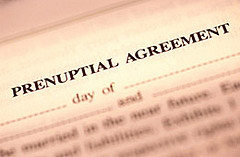
by admin | May 2, 2012
Responses to Frequently Asked Questions About Prenuptial Agreements
Prenuptial agreements, often misunderstood and misrepresented, are far from being a harbinger of doom for marriages. They are not “weapons” designed for future spouses to wield during a divorce, but rather, they serve as a crucial form of insurance for any marriage. In this article, we aim to address common objections to prenuptial agreements logically, shedding light on their true purpose and benefits.

Objection 1: “If we end up getting a divorce, I’m sure it will be civil.”
Response: It’s natural to believe in the strength of your love at the beginning of a marriage. However, even the most loving relationships can take unexpected turns. No one can predict the future, and a carefully drafted prenuptial agreement serves as a safeguard. In the unfortunate event of a divorce, it ensures that the process remains civil and avoids emotionally and financially draining court battles.
Objection 2: “Prenups always favor the husband.”
Response: This is a common misconception. Prenuptial agreements are designed to be equitable and fair, regardless of gender. They empower both spouses by assigning a fair monetary value to non-monetary contributions, such as the role of stay-at-home parents. This protection is especially crucial for women who may have sacrificed their careers to raise children. All prenuptial agreements must meet legal standards of fairness and equity to be upheld in court.
Objection 3: “Why do we need a Prenup? Neither of us have any substantial assets.”
Response: Even if couples enter marriage with limited assets, it’s important to recognize that success can come in various forms throughout your life together. In today’s economy, financial situations can change unexpectedly. A well-thought-out prenuptial agreement ensures that each spouse retains what they have earned, providing security regardless of future financial developments.
Objection 4: “A Prenuptial Agreement means you don’t trust me.”
Response: Quite the contrary. A well-drafted prenuptial agreement can only be created within a trusting atmosphere where both parties openly disclose their assets and debts. By addressing these issues upfront, it fosters transparency and enables couples to resolve potential conflicts proactively.
Objection 5: “I’ll always be worried.”
Response: On the contrary, a prenuptial agreement offers the ultimate peace of mind for both spouses. When decisions about marital assets, debts, and support are addressed upfront, both parties can rest easy, knowing their assets are protected, regardless of what may arise in the future.
Understanding Prenuptial Agreements Safeguard Your Future
In conclusion, prenuptial agreements are not about doubting the strength of your love; they’re about being proactive and responsible in safeguarding your future. They promote fairness, trust, and peace of mind. If you’d like to explore this topic further or need guidance on prenuptial and postnuptial agreements, please refer to “Your Guide to Long Island Prenuptial & Postnuptial Agreements” for comprehensive information. For a free consultation on your prenuptial agreement, contact us at 631-923-1910 or fill out the short form below and we’ll get right back to you.

Get your complimentary consultation and case evaluation with our experienced attorneys today.
Your attorney will describe the many options available and determine together which is the right solution for you. By the end of this conversation, we’ll all understand how we can best help you to move forward.
No Cost or Obligation
There is no cost or obligation for this initial consultation. It is simply an opportunity for us to get to know each other, answer your questions and learn if Hornberger Verbitsky, P.C. is right the right law firm for you. Give us a call at 631-923-1910 or fill in the short form below for your free consultation and case evaluation.
All Fields Are Required









 Four days before their marriage, Mr. Petrakis approached Ms. Cioffi-Petrakis with a prenuptial agreement orally stating that if she signed it, once they had kids, he would destroy the prenuptial agreement and add her name onto the deed of the house. Mr. Petrakis told her that he didn’t want to do it, but his lawyers wanted him to protect his business and future. He also stated that if she didn’t sign it, the wedding, for which Ms. Cioffi-Petrakis’ father had already paid $40,000, would be off. Ms. Cioffi-Petrakis signed the prenuptial agreement. Mr. Petrakas promises were made orally and were not included in any part of the contract and he subsequently went back on his word.
Four days before their marriage, Mr. Petrakis approached Ms. Cioffi-Petrakis with a prenuptial agreement orally stating that if she signed it, once they had kids, he would destroy the prenuptial agreement and add her name onto the deed of the house. Mr. Petrakis told her that he didn’t want to do it, but his lawyers wanted him to protect his business and future. He also stated that if she didn’t sign it, the wedding, for which Ms. Cioffi-Petrakis’ father had already paid $40,000, would be off. Ms. Cioffi-Petrakis signed the prenuptial agreement. Mr. Petrakas promises were made orally and were not included in any part of the contract and he subsequently went back on his word.















